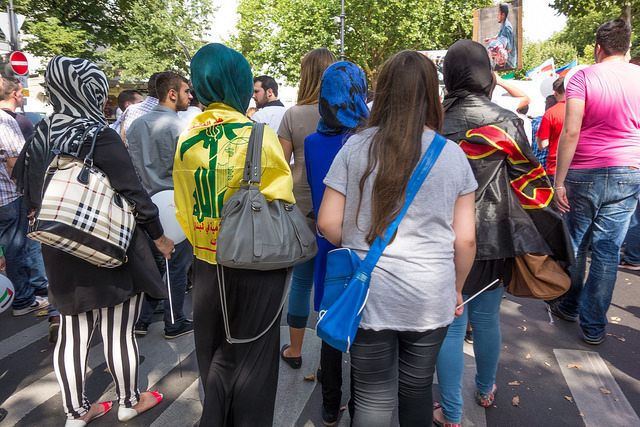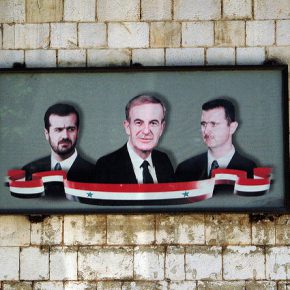The United States has always approached political Islam in a contradictory manner. Since the 1950s, when Washington first made common cause with anti-Communist religious leaders, US policy towards the Mideast has been characterized by a disconnect between rhetoric and politics, particularly in matters concerning Islamist mobilization.
Such is the thrust of Fawaz Gerges’ seminal 1999 book, America and Political Islam. For Gerges, political Islam is a vision of the religion as a movement, against secular nationalism in favor of a polity based on Sharia law.
In the Muslim majority societies where Islamists arose, the secular ruling class – whether Iranian, Syrian, Egyptian, Algerian, or Turkish – was associated with a failed state socialism, a failed challenge to Western hegemony, and a failed democracy agenda. In the more extreme versions, political action – traditionally a secondary concern is Islamic societies – gains prominence in the language of armed “liberations.”
The conflict between these camps is one of perceptions about Islamist motives in relation to the US experience. Accommodationists note that the United States cannot help but appear two-faced when it says it supports democratization in Egypt, but accepts at face value the broad anti-Islamist sweeps of the Egyptian security services as necessary security measures (note that this was written before the Arab Spring yet is true today with the government of Abdel Fattah el-Sisi).
For confrontationalists, Islamism is the next great rival after Communism and fascism, incompatible with Western democracy and secularism. Islamist entities are uncompromising revisionist powers – as unredeemable as Soviet Communism, and who must like, the USSR, be contained.
This was very much the view of Samuel Huntington, according to his Clash of Civilizations thesis. For Huntington, following the fall of the USSR, the next great global rivalries would all be motivated by cultural differences exacerbated by the pace of globalization. The line is being drawn between the West and the “rest”.
Religion will continue to fill the gap between worldwide economic modernization and social change: the state will become more of a cultural entity than a political one. In Islamic civilization specifically, democracy is said to “strengthen anti-Western” movements, and the intensity of conflicts between “the West” and “Islam” will increase.

The definition of “civilization” as a cultural unit that stands above ideology is highly problematic, since it reduces ideology as a function of “Western civilization.” Can other civilizations, then, not have their own ideologies because “ideology” is only a Western construct? While Western historical movements, or a specific reaction against them, by and large define extant political ideologies, non-Western civilizations continue to rely on ideological systems to justify their behavior, schematize their worldview, and mobilize across borders. “We are all swimming in these waters,” Edward Said retorted to Huntington’s clash thesis.
Islamism is, to be sure, a reaction against Western imperialism and acculturation. Similar patterns of political organization are present in Eastern Europe and Latin America, so the reaction must be steeped in something more than that “old-time religion.” But the anti-Western political forces Huntington speaks of are anti-Western primarily because those “Western” values Islamists are reacting against are associated with pro-American political violence and oligarchy in practice. One could even point to the Assad regime’s hollow defense of minority rights and secularism in Syria as partial cause for religious reactions against the Baathist regime.
The simple fact that these forces do exist as opposition to the autocratic norm affords them a legitimacy that the dictators and their one percenter-beneficiaries benefit from. Or, even more prosaically, in a war against a nominally secular regime, people are backing the Islamists because they are the ones on the ground fighting off government attacks that amount to collective punishment against civilians in rebel-held areas.
The trappings of “Western” values so often trumpeted don’t actually come with anything like democracy and a political culture that really accommodates pluralism. It doesn’t exist, even as “optics,” outside of a few urban bubbles anyway. Even before the Syrian revolt, in Afghanistan and Iran during the 1970s, where for all the visible freedoms certain social classes enjoyed in terms of education (and choice of dress), many people left outside of those bubbles were kept in grinding poverty and the tender mercies of secret police carrying about the business of “modernizing” the country at gunpoint.

The middle classes were aware of these limits, too, and pushing against those limits meant identifying with something more comfortable, even nostalgic: that was religious activism in politics and social groupings. With such associations, little wonder people traded in their very limited “liberal” trappings for a system that, at the time, seemed to offer real choices.
Alas, though, such systems have in turn come to imitate those they replaced by clinging to the notion that real choices are possible while enforcing rigid segregationist lines against different genders, classes, and ethnicities. It, in fact, echoes Erasmus’s The Education of a Christian Prince, which preaches how a ruler must hold absolute power over free and willing subjects, ruling for their happiness.
This would seem to be a contradiction. But, with the emphasis on “Christian,” such a contradiction is not recognized, since the absolute power is defined as the Christian ruler upholding God’s laws over his fellow Christians. There are no confessional differences, and “happiness” means a society where God’s law is upheld. In Islamist thinking, such notions are also no mere philosophical musings, but part of an actual political program like the one Erasmus had in mind. The existence of a virtuous Islamic society is the basis for the Islamic polity’s existence and the form of government it operates under.
Huntington generally ignored the differences among “Islamic” nations, though – at one point suggesting that the reason most Arab nations came to oppose containing Iraq in the 1990s was because of a shared civilization animus against the Western powers. CiIn actuality, it has been well documented that their opposition to this program stemmed from their assessment that the “dual containment” of both Iran and Iraq would only benefit Iran in the long run, and they (rightly so) regarded Iran as an imperial rival. The geopolitical and ideological rivalries among these nations have only sharpened since the end of the Cold War.
It is not just the matter – as is so often the case at the levels of the superrich and unaccountable – that “petty” ideologies and borders no longer count. It is a shared opposition to self-determination unless it selectively serves to maintain a sphere of influence. Though both Huntington and Gerges’s formative works cover a pre-9/11, pre-Iraq era, Gerges’s analysis ultimately holds up quite well going into the post-9/11 era, especially with respect to Washington’s interventions after 2011 in the Mideast.
Disagreement on the finer points of this American-Israeli-Arab coalition’s spheres of influence explains the United States’ half-hearted twists and turns on Syria quite well, in contrast to the much clearer positions adopted on, say, Bahrain or Libya over the past five years.
Photographs courtesy of Joel Schalit





